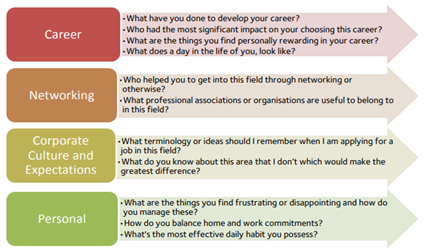Mentorship Programs Make a Difference
Author: Karen Caterino, Alliant
There is a confluence of factors that make mentoring in today’s workplace even more valuable. The Great Resignation has led to a wave of retirees leaving the workforce, and with them their wisdom, knowledge and decades of experience gained on the job. As the next generation is learning new skills and industries, having a positive relationship with a mentor increases employee engagement, accelerates career development, promotes a diverse and inclusive workplace, helps retain high performers and can help with even attracting talent to your organization.1
Mentors are considered experienced, trusted advisors who share their knowledge, skills and wisdom to help another develop and grow. The goals of mentorship are to help mentees with career growth, introduce new business contacts and act as a resource.
Finding a mentor can seem daunting, but it doesn’t have to be. Mentors literally come in all shapes or sizes! You could ask someone who has your dream job or follow an influencer, leverage a formal workplace program, or draw from your own professional circle or industry resources. What’s key is to find someone that is willing to give you a hand up (not hand out!) and invest time to help in your career development and personal growth.
Once you have found a mentor, be prepared at your first meeting. The mentee drives the conversation around the length of the mentorship, frequency of meetings and sets tasks to be completed prior to each meeting. While that may seem daunting, here is an example of key topics and questions for your first meeting:2

As the relationship develops, tasks can be set and completed with both the mentor and mentee discussing progress, obstacles and guidance for future actions. Keep in mind, mentors don’t always tell you want you want to hear, but what you need to hear in order to grow. Feedback is an important element in mentorship, one that takes time to develop expectations and build trust.
Benefits of being a mentee:
- Learn the workplace culture
- Enhance skill development
- Networking opportunities
- Potential for promotion
- Problem-solving
- Knowledge Transfer, to name a few.
Benefits of being a mentor:
- Validate the mentor’s leadership skills
- Become recognized as an advisor
- Learn to clearly communicate
- Gaining new perspectives
- Giving Feedback and finding new talent, and many more.
Good mentorship programs have the ability to accelerate staff diversity and inclusion too. These programs allow us to see others as people first, moving beyond labels and stereotypes. Mentors and mentees can help each other to redefine normal and create positive experiences within our workplace and communities. It's no wonder that 84% of Fortune 500 companies3 offer some type of mentorship program. These organizations focus on finding the right match, making expectations clear, offering sufficient training and support, being specific and even making the mentorship program mandatory.4
Mentorship can go a long way to improving organizational performance as well as ensuring a pathway for the firm’s continued success. Mentoring is a way of connecting and sharing challenges while obtaining other perspectives from an unbiased resource. It is a great way to develop employees, deepen technical understanding, build connections and strengthen an organization’s talent pipelines.
Source:
[1] https://www.togetherplatform.com/blog/what-is-the-purpose-of-mentoring
[2] https://www.griffith.edu.au/__data/assets/pdf_file/0023/552263/MENTEE-FIRST-MEETING-CHECKLIST.pdf
[3] https://www.mentorcliq.com/blog/mentoring-stats
[4] https://www.forbes.com/sites/iese/2022/09/26/the-five-secrets-of-the-best-mentoring-programs/?sh=7a63519b3869